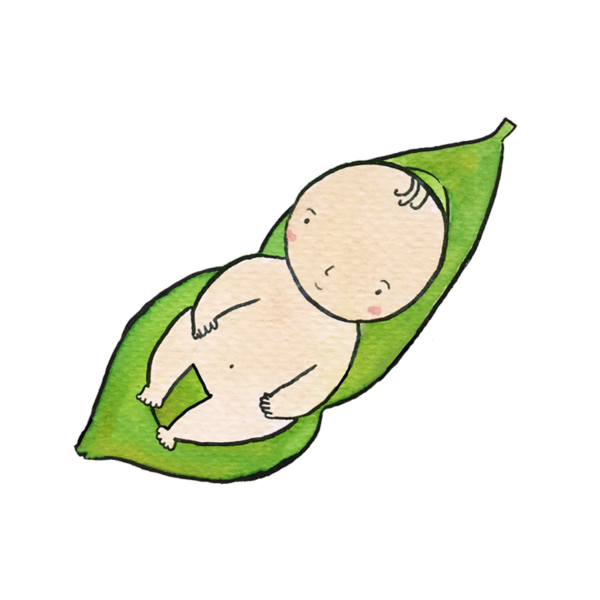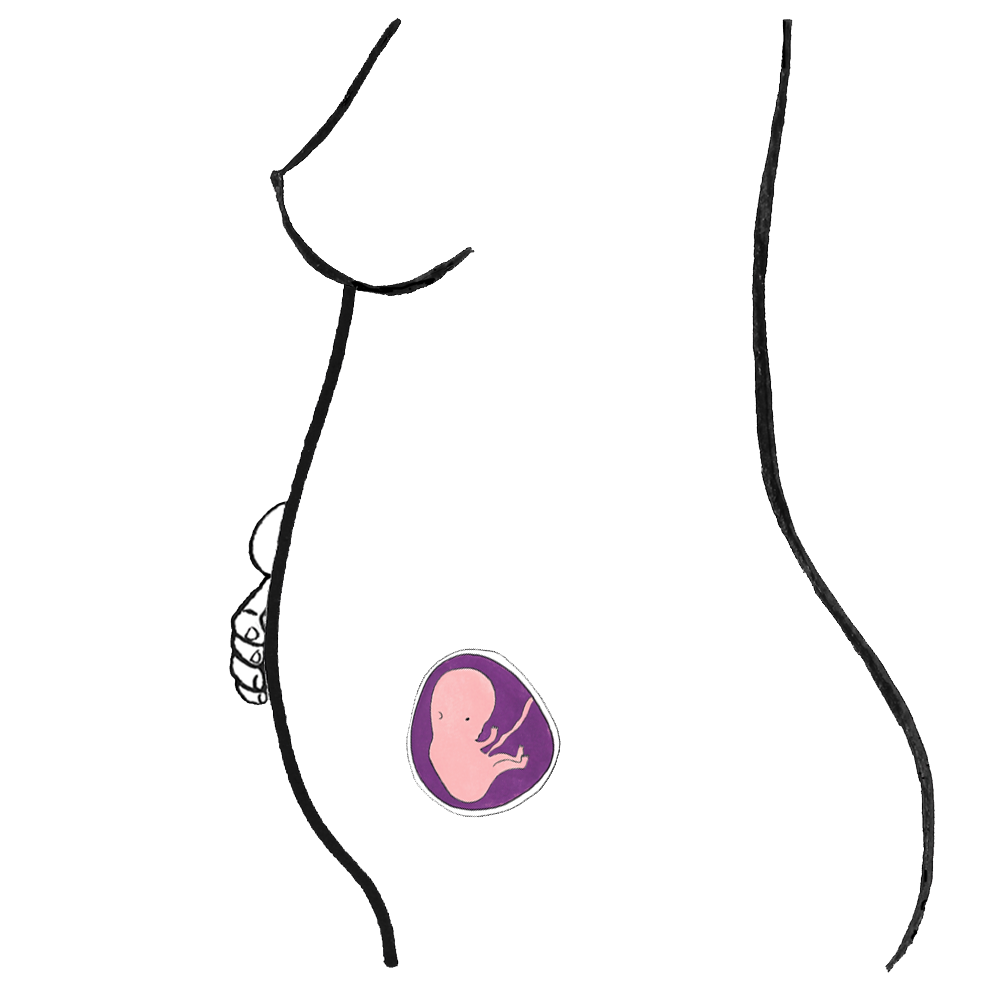13 weeks pregnant
Weekly update

Your Child’s bones are becoming stronger, and you might start to notice more second-trimester symptoms, such as constipation, cravings, tender breasts, and increased sex drive.
Your Child’s development
Your Child weighs about 25g and measures about 7.5 cm — the size of a pea. The growth of the lower body is meeting up with that of the head, so the little one now looks more like a real person.
The voice: The vocal cords, which are folds of tissue in the throat that create sounds through vocalization, are forming this week.
The bones: Your Child’s bones now become harder, especially the head and long bones. The muscles of the chest wall are starting to develop too.
Urine formation: At the beginning of this week, Your Child’s kidneys start to function. Once the little one can swallow amniotic fluid, it will discharge in a form of urine into the amniotic sac. Excess water in Your Child’s blood excretes through the kidney in the form of urine. The amount of urine will slowly increase, and by the later weeks of your pregnancy, approximately half a liter is added to the amniotic sac daily.
Intestines: The intestines complete their movement from the umbilical cord into their permanent home inside Your Child’s tiny belly.
Hormones: Iodine concentration, an element that is needed for the production of thyroid hormone, can be detected now. This means that the thyroid gland now begins to synthesize hormones that are crucial for Your Child’s growth and brain development.

Your development
One common feature of week 13 is an elevated sex drive. Sex during pregnancy is normal and safe unless your doctor advises against and recommends pelvic rest for conditions like placenta previa.
The linea nigra: You may start seeing a dark benign vertical line that runs from your pubis to your naval — the linea nigra. You can’t stop the pregnancy line from appearing, as it is a natural occurrence in pregnancy. Usually, the line fades away soon after giving birth.
White discharge: You may have increased vaginal discharge, leukorrhea in particular — a white discharge that prevents the birth canal from getting infected. There’s nothing you can do to stop the discharge, so don’t lose sleep over it, unless you’re having some discomfort or rash or it has a foul smell. To ensure your comfort, you can use panty liners. Tampons should be avoided because they can lead to infections.
What you can do
Maintain a healthy diet and remember to take prenatal vitamins if you are not sure that you can get all your vitamins the natural way.
If your body gets inadequate or poor nutrients, Your Child physiology adapts to what’s available. Research suggests that if children experience malnutrition while in the belly, they have an increased risk to face health problems, like obesity, heart conditions, and diabetes later in life.
Verified:
Dr. Wanwadee Sapmee Panyakat (OB-GYN), license no. 41208 (20 October 2021)



